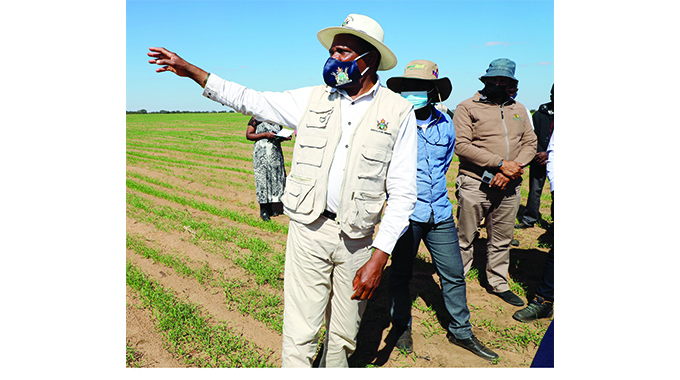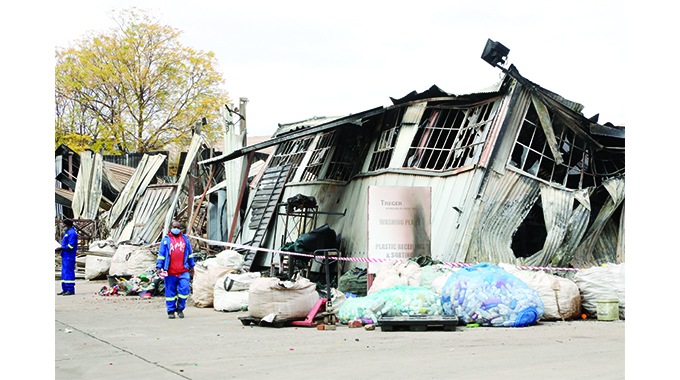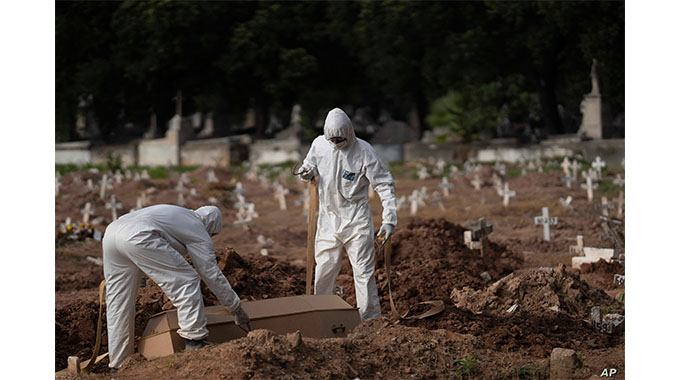Bubi-Lupane pilots rural industrialisation

Mashudu Netsianda, Senior Reporter
GOVERNMENT has identified Bubi-Lupane Irrigation Scheme in Lupane, Matabeleland North, as a pilot project for an integrated business model to be replicated by 450 irrigation schemes across the country as the Second Republic accelerates rural development and industrialisation in line with Vision 2030.
The 180 hectare Bubi-Lupane Irrigation Scheme is a community project, which Government, through the Agricultural Rural Development Authority (Arda), is reviving.
In an interview on the sidelines of his site visit on Friday, Lands, Agriculture, Fisheries, Water and Rural Resettlement Minister Dr Anxious Masuka said the projects that are been undertaken by Government through various agricultural schemes are meant to transform subsistence agriculture at household level into commercial agriculture.
“We want to increase the viability of Bubi-Lupane Irrigation Scheme through an integrated business model. We want the scheme to be the leading example of an integrated business model that will be replicated in 450 irrigation schemes across the country,” he said.
Under the integrated business model, each Arda irrigation scheme will have a business development manager.
“As Government, we want all the 450 irrigation schemes to have business managers and run as a business. We have many other districts that are waiting for this kind of investment, but we can’t go there until we get this right so that when we go elsewhere, we just replicate the model,” he said.
“Bubi-Lupane Irrigation Scheme must be an example where we can bring anyone who doubts the model to come and see that this is how you develop the community. That is why we have restructured Arda. It has the estates side of things, but also has rural development through agriculture where you do value addition and beneficiation and begin to create rural industries.”
Dr Masuka said irrigation schemes must ensure food security and that farming is a business so that household incomes and livelihoods improve.
“We want to industrialise rural areas through these irrigations’ schemes. Bubi-Lupane Irrigation Scheme should operate as a viable business unit. For instance, you can start your business such as a bakery where you will be having wheat as your raw material that you are producing and can value add and be able to get more money,” he said.
“Communal farmers should become commercial farmers or be oriented as such. We are also capacitating the extension services so that they too can transition from offering optional extension as they were doing to become business advisers. A combination of all that is what we are doing to ensure that everyone participates so that no household and village is left behind.”
Dr Masuka said his visit to Bubi-Lupane Irrigation Scheme was to access the winter wheat crop, which is being undertaken for the first time.
Farmers have planted 180 hectares under all the three centre pivots and the wheat has since germinated. Government has targeted 85 000 hectares of land to be put under winter wheat this year.
A target of 340 000 tonnes of wheat has been set under the programme.
During this season, 60 000 hectares will be produced through a Government guaranteed CBZ Agro-Yield programme, 15 000 hectares will be funded by private contractors while 10 000 hectares will be funded through the Presidential Winter Wheat Scheme.
Dr Masuka said agriculture remains a key sector in all the provinces with 70 percent of the country’s population involved in farming.
“The logical starting point is Vision 2030, which is of a prosperous empowered upper middle-income society and that is why we have started doing provincial GDPs so that each province knows where they are. Naturally, agriculture must be the engine to uplift our people out of where they are to Vision 2030,” he said.
Arda chief executive officer Mr Tinotenda Mhiko said they deployed a scheme development manager to Bubi-Lupane Irrigation Scheme to ensure that the scheme is run viably and sustainably.
“We established 180 hectares of winter wheat and we are pleased with the development and work on the ground and we are looking at replicating this in 450 irrigation schemes across the country.
“From this model, we are paying attention to the agronomic practices and our operational efficiency targeting to get at least 5 tonnes per hectare,” he said.
“In terms of money, we are looking at generating $220 000 per hectare working on the producer price of $44 000 per tonne. We are here to empower these farmers as Arda working in conjunction with other Government departments and agencies such as Agritex, Department of Irrigation, Zinwa and Grain Marketing Board.”-@mashnets











Comments